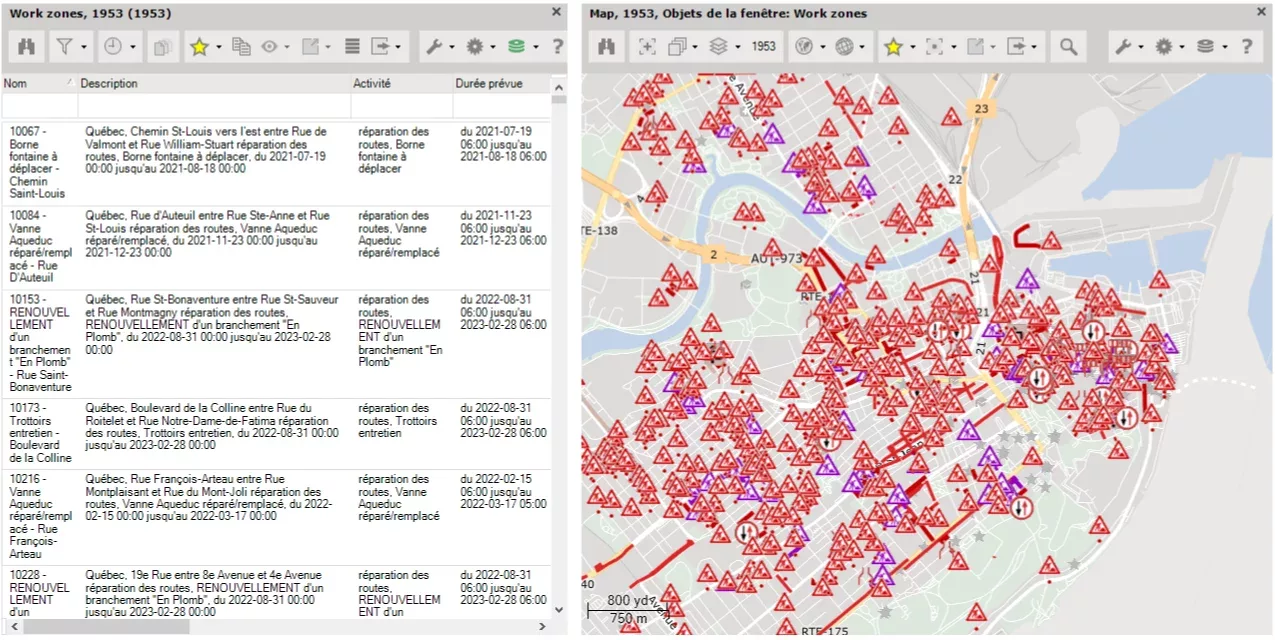Quebec City in Canada is boosting efficiency on its road network by using a beginning-to-end solution to manage all the work zones in its area.
The city, which is home to 550,000 people has a specific challenge when it comes to building new roads and maintaining its existing ones, because the weather limits work to take place between April and October. This means that during the summer months there can be upwards of 2000 different sets of road works, and that can lead to major disruption if they are not carefully co-ordinated.
Quebec City has therefore procured a Work Zone software solution to be used by planners to coordinate roadworks and to inform citizens which have until now been notoriously difficult to keep track of.
The solution, TIC for Work Zones, has been provided by German software company GEWI and supports the management of work zones using configurable, predefined steps to define exactly what work will be done, when and where. The all-in-one system handles every aspect, from a request for works, through analysis, to permit generation and sharing the information. By using a single system, solving many solutions delivering the information across multiple channels, the chance of discrepancies, conflicts and omissions are greatly reduced.
The solution can be used to automatically import requests for permit from other existing systems: with data being harmonized, and if required improved by the operator.
All work zones are highly coded and geo-referenced. Therefore, the solution can automatically detect conflicts.
The solution cannot only export the permit documents, but also output to websites and social media (in multiple languages), to sat nav systems, connected vehicles and to systems supporting the USDOT WZDX standard. The work zone data can even be used to issue fines for works being carried out without a licence, or feed the 911 system to save lives: emergency vehicles can find the best route the incident location.
The solution is vital for Quebec City because of the imminent start of a major project to build a new tramway, which will involve extensive on-street works and traffic management. Because the system delivers a holistic view of all roads in the city, it automatically identifies places where there may be a conflict between two sets of works, and enables transport planners to manage timings so that roads are not brought to a standstill.
As the snow melts next spring and the work zone staff return to Quebec city’s roads, people travelling around the area can be confident that any traffic delays caused by the extensive improvements to the transport network will be kept to a minimum, as the latest technology in traffic management delivers the most efficient roadworks possible.
This solution provides a much-needed efficiency improvement in a city with challenging weather, but is just as applicable for any municipality where multiple sets of work are undertaken simultaneously on streets. Any city can benefit from a more streamlined licencing and information-sharing solution, and an automated way of spotting conflicts between different projects, changing dates or mitigating effects to ensure critical congestion is not caused by works taking place on nearby roads at the same time.
GEWI is attending and exhibiting at the ITS World Congress, Los Angeles – Booth Number #1043




















